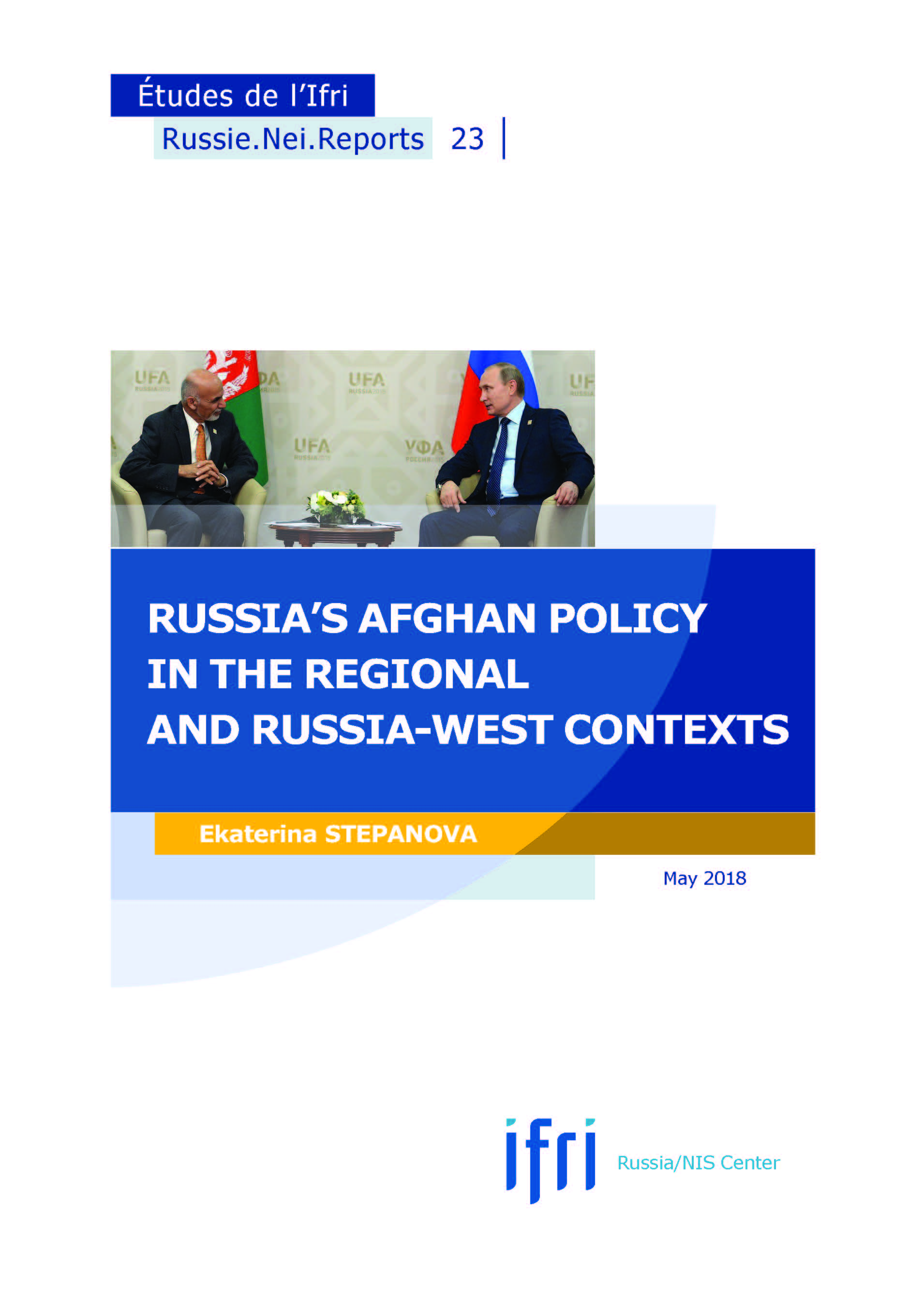Russia’s Afghan Policy in the Regional and Russia-West Contexts

This report seeks to explain the main trends in Russia’s evolving Afghanistan policy, with the focus on its regionalization, diversification, and new emphasis on diplomacy that culminated in Moscow regional peace consultations. It argues that none of Russia’s Afghanistan-related concerns can be alleviated as long as the armed conflict there continues in full force. This makes Moscow genuinely interested in stabilization.
However, the mere combination of military pressure against the Taliban and Western support of the Afghan government cannot achieve stabilization. As Russia remains severely constrained on any hard-security track and has limited leverage inside Afghanistan, there is little it can do apart from pushing for a regionally inclusive political process and supporting, within its capacity, anti-Islamic State of Iraq and Syria (ISIS) efforts at national, regional and international levels. Both tasks require access to all major regional players, including even limited communication channels with the Taliban. The report explores the effects of the evolving US/NATO factor on Russia’s policy and Moscow’s reaction to the revised US policy on Afghanistan under President Trump. Finally, it looks at how Afghanistan features in the rarely addressed Russia-Europe/EU context and whether there is any potential for cooperation or parallel efforts with similar or compatible goals.
Ekaterina Stepanova heads the Peace and Conflict Studies Unit at the Primakov National Research Institute of the World Economy and International Relations (IMEMO), Moscow.
Download the full analysis
This page contains only a summary of our work. If you would like to have access to all the information from our research on the subject, you can download the full version in PDF format.
Russia’s Afghan Policy in the Regional and Russia-West Contexts
Related centers and programs
Discover our other research centers and programsFind out more
Discover all our analysesThe Caspian Sea as an Emerging Energy Hub : Potentials and Limitations
This report analyzes the prospects of the Caspian Sea region — and its key actors except for Russia and Iran — becoming an important energy hub serving the needs of the European Union (EU).
The European Union's Strategic Test in Georgia
The political crisis brewing in Georgia is of an existential nature for the country. What is at stake is Georgia's future as a democratic and sovereign European nation (EU).
Commanders of Putin's Long War: Purged, Reshuffled and Disgruntled
The trend of reshuffling the Russian top military command in the course of a fast-evolving and far from successful war has progressed unevenly both across the Armed Forces’ structures and in time. The rationale for and timing of the abrupt cadre decisions made by Commander-in-Chief Putin often defy logical explanation, and the rare official clarifications are no more informative than the usual information blackout.
Russian Military Manpower After Two and a Half Years of War in Ukraine
In addition to a military victory in Ukraine, the Russian leadership is planning to build up sizable troop formations for a possible conflict with NATO in the Baltic region and the Kola Peninsula. In particular, current plans aim for the military manpower to grow by about 350,000, reaching a total of 1.5 million soldiers and commanders. In the context of the current conflict in Ukraine, this cannot be accomplished without a new wave of mass mobilization.









